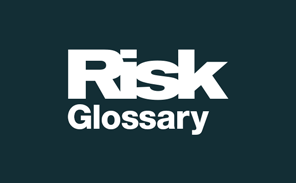Algorithmic and quantitative trading: best practices workshop
View AgendaKey reasons to attend
- Learn about the existing key components in a trading platform
- Gain an overview of the Python programming language for trading uses
- Use backtesting to analyse trading scenarios
Customised Solutions
Does your team require a tailored learning solution on this or any other topic?
Working with the portfolio of expert tutors and Risk.net’s editorial team, we can develop and deliver a customised learning to make the most impact for your team, from initial assessment to final review.
About the course
Gain valuable insights into the diverse components, strategies and challenges of algorithmic and quantitative trading.
This highly informative learning event will equip participants with best practices for effectively aligning the foundations of Python with quantitative trading strategies through practical examples. Participants will learn how to build a trade simulator to analyse model and strategy risk, while interactive sessions will delve into the key principles of algorithmic trading strategies, including statistical arbitrage and market timing.
Alongside peers and the expert tutor, participants will explore high-frequency trading in a detailed case study, and will participate in a practical demonstration on parameter-tuning techniques to optimise performance.
Pricing options*:
- Early-bird rate: save up to $800 per person by booking in advance
- 3-for-2 rate: save over $3,000 by booking a group of three attendees
- Subscriber reward: save 30% off the standard rate if you are a Risk.net subscriber
- Season tickets: save up to 60% - request price breakdown
*T&Cs apply
Learning objectives
- Develop trend-following, execution and market timing strategies
- Integrate machine learning models into algorithmic trading practices
- Align compliance with algorithmic and quantitative trading
- Evaluate the effectiveness of strategies with backtesting processes
- Analyse technical indicators used in quantitative trading
- Explore the relationship between quantitative and traditional trading
Who should attend
Relevant departments may include but are not limited to:
- Trading
- Risk management
- Machine learning
- Model risk
- Artificial intelligence
- Compliance
- Regulation
- Technology
- Algorithmic trading
- Quantitative trading
Pre-reading materials
The Risk.net resources below have been selected to enhance your learning experience:
- Can algos collude? Quants are finding out
- Neil Chriss sets out to codify the game theory of trading
- AI expert warns of algo-based market manipulation
A Risk.net subscription will provide you access to these articles. Alternatively, register for free to read two articles.
Expand your learning
The premier meeting place for the risk community. Providing clarity and guidance on the fast-changing regulatory landscape of capital, credit and market risk, liquidity and derivates use.
Risk Journals deliver academically rigorous, practitioner-focused content and resources for the rapidly evolving discipline of financial risk management.
Risk Books are authored by leading professionals and academics. With over 150 books spanning 1,000s of chapters, our publications team is committed to connecting readers with these world class experts.
Regularly updated by our team analysts, journalists and producers, our glossary demystifies the terminology and acronyms used in risk management, risk transfer, policy, technology and innovation.



